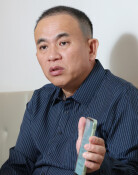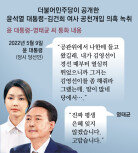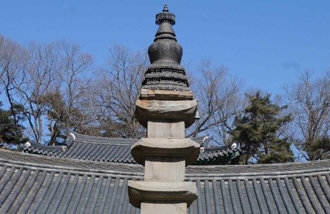Korea sees rise in repeat examines of college entrance exam
Korea sees rise in repeat examines of college entrance exam
Posted January. 29, 2024 07:46,
Updated January. 29, 2024 07:46
The trend of increase in repeat examinees of the college entrance exam, despite the decline in student population, is expected to continue this year as well. The proportion of repeaters who took the college entrance exam last year was 35.3% (177,942), the highest in 28 years. This year, there were more than 175,000 repeaters, which was 34% and in the 30% range for the third year, mostly because many examinees were not satisfied with their scores for the exam, which was notoriously difficult last year, and medical schools increasing admission quota.
Repeat examinees have their eyes on the news for the medical school admissions quota to be released next month. There is word that the increase will be at least 1,000. Also, universities are preparing to release plans to adopt interdisciplinary studies in their curriculum, paving the way for students to apply for medical schools or majors of high demand. Usually, repeat examinees enroll at study academies after checking their college application results. Still, this year, many students did not even bother to apply and went straight to enroll at study academies. Study patterns of students enrolled at university but preparing to retake the college entrance exam are also shifting. Usually, they start studying in June, after the first semester, but this year, many are lining up to sign up for classes at night and on the weekends.
Growing competition is resulting in increased costs for society overall. The side effects of growing competition have increased tremendously. With more than 170,000 students studying at college entrance exam preparation academies, the market has reached 3 trillion won, raising burdens on private education spending. University students enrolled at school but preparing for the exam let their tuition of millions of won go to waste. With such students nearing 100 thousand per year, this impacts the movement of students from provincial areas to the Seoul Metropolitan Area, Seoul, and ultimately to medical schools. Repeaters experience delays in studies and starting work, which impacts social productivity and birth rates.
According to the '2022 Korea Economic Report’ by the OECD, the gap between large corporations and small companies, between regular and non-regular workers, causes academicism, excessive spending on private education, delays in joining the labor market, marriage, and childbirth.' This issue can be resolved by educational reform that abolishes elitism, as well as labor market reform to ensure stable living without striving to be a regular worker at a Korean conglomerate or medical doctor.
Headline News
- N. Korea conducts ICBM test ahead of U.S. presidential election
- Samsung Electronics to expand 5th Gen HBM Sales in Q4
- Gov’t flags possible tax evasion among pension exemption applicants
- Draft of U.S.-brokered 60-day truce between Israel and Hezbollah leaked
- Half of working seniors earn less than 1 million won per month







